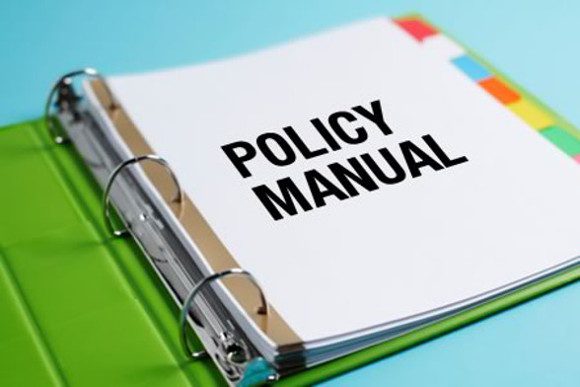
When I worked for the police department, one of the first pieces of equipment that we were issued was a policy manual. It was several hundred pages in length. It told us how to dress. It provided guidelines for arresting people, handling evidence, use of force, driving, and so much more.
It was a bit overwhelming at first looking at that big book. Over the years, though, I began to appreciate the wisdom of having a policy manual. It helped guide me to make the correct decisions. It also protected me as long as I was following the policies written in that big manual.
Many companies and government agencies have written policies that guide their day-to-day activities. Most churches, however, do not have written policies or guidelines. Of course, they do have policies on how they do certain things. They just have not taken the time to compile and write down the unwritten policies that they already have.
For smaller churches of one hundred people or less, having written guidelines may not be quite as crucial as it is for a larger church. As the church grows, however, documenting their policies and processes becomes essential. If that is the case, why not set ourselves up for success early on?
What is a Policy?
The Pacific Crest Group gives this definition– “A ‘Policy’ is a predetermined course of action, which is established to provide a guide toward accepted business strategies and objectives. In other words, it is a direct link between an organization’s ‘Vision’ and their day-to-day operations. Policies identify the key activities and provide a general strategy to decision-makers on how to handle issues as they arise.”
What Does a Policy Do?
1. It helps us make decisions. A policy provides clear guidelines for certain situations so we don’t have to waste our time deciding what to do. This is just as true for a church or other non-profit organization as it is for a business. A policy empowers people and lets them know how to do certain tasks. In essence, the policy make decisions for us.
2. They provide a great training resource. Everyone should be clear on and going in the same direction. For new employees, written policies give clear guidelines for how to do their jobs. Many jobs have certain tasks that are done over and over. A written policy provides the instructions for those tasks.
3. They protect the employee. Everyone wants to know what is required of them on their job. By giving our employees and volunteers specific guidelines on how to do their jobs, there will be no misunderstandings. We want our employees and volunteers to feel empowered. It they have clear guidelines, they will not always be running down the hall to their supervisor to ask for guidance. If they are following the policies that have been put into place, they don’t have to worry about whether or not they are doing what is required of them.
4. They protect the organization. For an employee who does not follow our guidelines or policies, we have the opportunity to provide corrective action, remedial training, or even termination. Without clear guidelines and policies, it becomes much more difficult to take corrective action or fire someone who is not performing. Even churches need to protect themselves civilly if they have to fire someone. Written policies can protect us in these situations. Policies that are written down are clearer than those that are only verbal.
What Does a Good Policy Look Like?
1. Easy to Understand. I have read policy manuals that were obviously written by a lawyer. While it is always a good idea to have certain policies reviewed by our lawyer, I do not think it is a good idea to have the lawyers write the book. They should be written in simple, easy-to-understand language. Good policies and guidelines make things clear.
2. Easy to change when it needs to be updated. Policies, guidelines, and processes will need to be updated from time-to-time. The reasons for this are varied. New leadership may want certain things done differently, new technology may become available making our process out-dated, or even certain changes in workplace law may require a change in policy.
3. Fits the culture of your organization. Our policies will reflect our culture and our values. The police policy manual that I was issued as a rookie cop will not be applicable for a church or non-profit organization. Your written policies and guidelines do not have to be boring and tedious. Make them fun and interesting.
Does your church have written guidelines and policies? Do you think that this is important for your organization? Let me know what you think!
Annie and I are serving the Lord in the US, South America, Africa, and India. We are training leaders and helping build great local churches. A gift to our ministry helps us to continue having a powerful impact. Just click here to get involved. Thanks so much!
